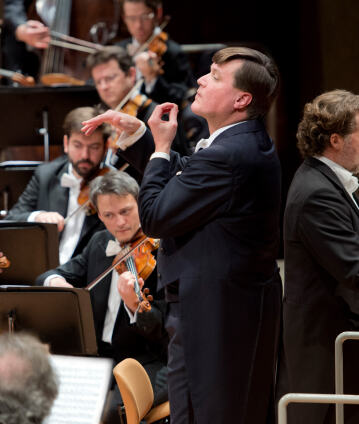Interview
Christian Gerhaher, Gijs Leenaars et Christian Thielemann à propos du « Requiem allemand » de Brahms Christian Thielemann dirige le « Requiem allemand » de Brahms

C’est avec le Requiem allemand que Johannes Brahms s’affirma à son époque comme un compositeur de premier plan. Grandiose par ses dimensions, cette œuvre véhicule un message humaniste puisqu’il y est moins question de la rédemption dans l’au-delà que de la consolation ici-bas. Le chef d’orchestre de cette représentation est Christian Thielemann, un interprète exceptionnel du répertoire post-romantique. Les parties solistes sont chantées par Siobhan Stagg et Christian Gerhaher.
Berliner Philharmoniker
Christian Thielemann
Chœur de la Radio de Berlin
Siobhan Stagg
Christian Gerhaher
© 2015 Berlin Phil Media GmbH
Interviews liées au concert